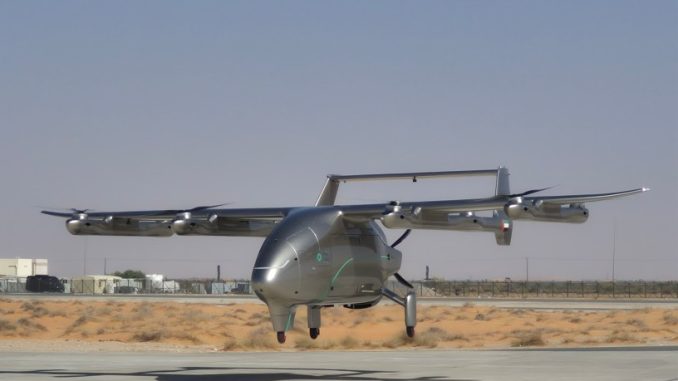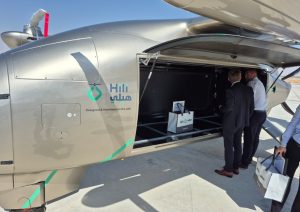
By Philip Butterworth-Hayes
Over the last few days, Abu Dhabi has become the epicentre of the global advanced air mobility industry. It has seen the Abu Dhabi Investment Office (ADIO) activate its investment framework agreement to accelerate Archer’s planned commercial air taxi operations in the emirate, sign a partnership with China’s ARIDGE (formerly kXPENG AEROHT) to accelerate the certification, testing and commercialisation of AAM technologies and launch a network 10 vertiports integrated into Abu Dhabi’s wider transport system. Then earlier this morning, Abu Dhabi hosted the first public flight of the UAE’s LODD Autonomous’ Hili cargo eVTOL.
It is the development of an indigenous eVTOL industry that is the most significant of these events, giving Abu Dhabi a significant foothold in the autonomous global cargo aircraft market which, until now, has been relatively slow to realise its full potential.
All that could be about to change.
“Abu Dhabi has become a test lab for the advanced air mobility industry,” said Rashid Al Manai, Chief Executive Officer of LODD Autonomous. “The government has a balanced approach between risk and technology and is ensuring that the regulations are advancing with innovation….It believes in this technology.”
While eVTOL development is stuck in the slow lane in many parts of the world in the United Arab Emirates (UAE), and Abu Dhabi in particular, it is now being fast-tracked.
It has taken the LODD Autonomous just 22 months from start-up to flying a protype of this complex aircraft, with full trials of a more conforming design, including higher levels of autonomy and perhaps auto-taxiing, planned for next year. Eventually, said Rashid Al Manai, with enhanced levels of autonomy there will be one human operator to four platforms. LODD Autonomy is developing an entire eco-system to support the aircraft, including a UAS traffic management (UTM) system.
At the start of the month LODD signed a deal with Etihad Cargo to explore the integration of Hili into the airline’s UAE operations; the aim is to have commercial test operations underway by Q2 2026.
Hili features eight electric motors for VTOL operations and a ROTAX pusher engine, giving a potential range of 700km (with charging in-flight), a cruise speed of 100 kts and payload capacity of 250kg, aiming the aircraft at the middle-mile logistics market, particularly in sectors such as humanitarian aid and offshore/highly rural area deliveries. So no lengthy charging procedures or battery swapping at the end of a flight and a very simple loading/unloading process.

Rashid Al Manai and Alex Brown
“You won’t need to have multiple transportation,” Rashid Al Manai. “Normally in a middle mile process a product will go from a warehouse by road to an aircraft, then the airline will fly that aircraft to another city, that product will then be moved from the destination airport to a distribution centre for a last mile delivery. This aircraft will be able to fly from warehouse A to warehouse B immediately,”
During the first public flight event, LODD Autonomous signed a deal with Skyports Drone Services to support marketing developments around the world. Skyports will acquire up to 10 aircraft, “primarily looking UK, Europe and the Middle East from an offshore-energy perspective such as oil assets and substations for windfarms and in ultra-rural cases of high value, such as operations in the outback of Australia,” said Alex Brown, CEO, Skyports Drone Services.
In these areas, said Alex Brown, the aircraft should be able to operate at a specific assurance integrity level (SAIL) of just two to three, which should speed the certification process.
Properly resourced, engaging regulations and a vibrant home market – Abu Dhabi is the latest disruptor of an already disruptive global market.


